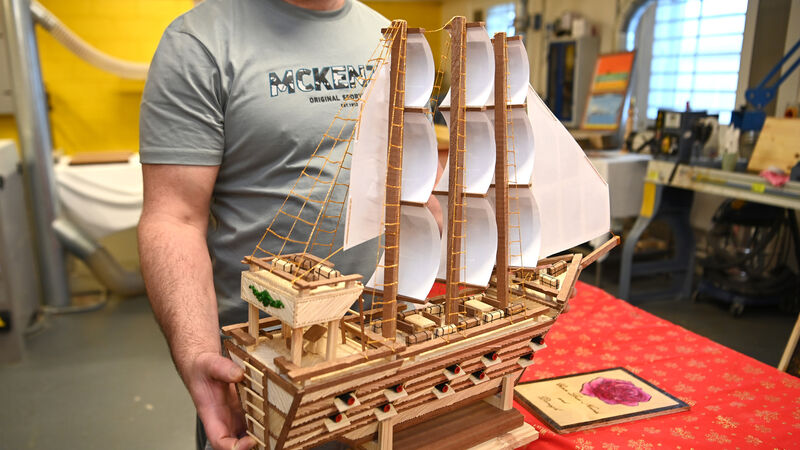'This is the first time I’m really enjoying school': Students develop love of learning at Cork Prison school

Work on display in the woodwork room at Cork Prison. Picture: Dan Linehan
Cian, not his real name, is currently serving a sentence for theft at Cork Prison, a medium security jail for adult men from Cork, Waterford, and Kerry.
“I’m 32 years of age and in and out of prison since I’m 18. I was only a young fella going over to the old jail,” he explained. He has had his struggles with cocaine addiction but this time around, he feels like a different man.











